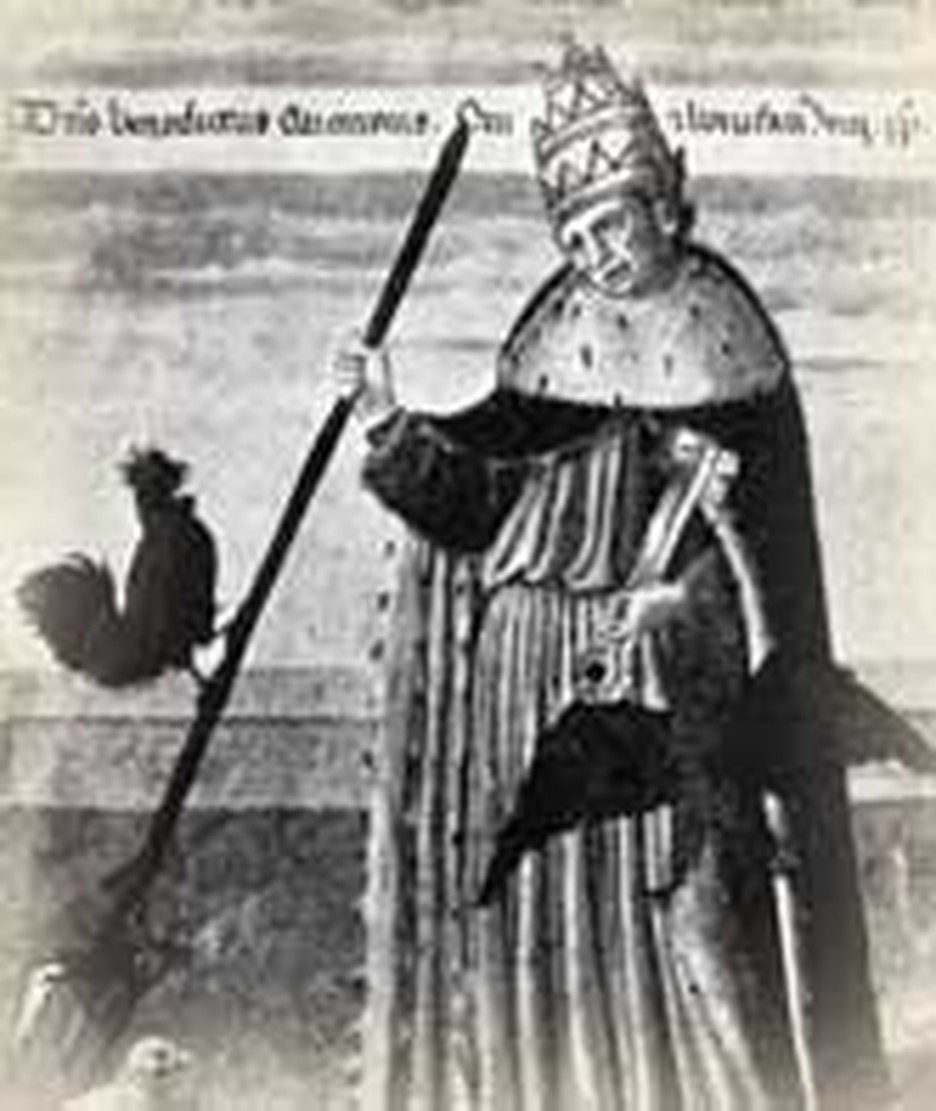
"...There is one holy Catholic and Apostolic Church, outside of which there is neither salvation nor remission of sins..."
"...Indeed we declare, say, pronounce, and define that it is altogether necessary to salvation for every human creature to be subject to the Roman Pontiff."
A bull is a solemn papal letter. The form was given this name because it was sealed with a bulla, a round lead seal. This particular bull was written as the latest round in an ongoing war of words between the pope and King Philip IV "the Fair" of France.
The pope had denounced the sins of Philip as a bad example to the nation he ruled. Boniface called a council of bishops to consider reform of the French church. Philip refused to allow French bishops to attend. Philip said that the pope claimed feudal lordship over of France. Boniface denied this but acknowledged that he was prepared to depose the French king just as earlier popes had deposed other French kings.
The date of the council came and Philip still refused to allow his bishops to attend. Pope Boniface VIII then published Unam sanctam.
Apologists for the Roman Church now say that it applied only to Catholics, who were all under the jurisdiction of the Roman church. Protestantism had not yet appeared on the scene, they note. And only the last line, they insist, provides a new statement of doctrine--saying there is salvation only for those who submit to the pope.
Protestants find that last line the most troubling, of course. They can agree that salvation is possible only in the church, because they define the true church as everyone who loves Christ and lives in him. They can accept Unam sanctam's lines about the Greeks, because Greek bishops can demonstrate succession back to the apostles. What they cannot agree upon is that all must submit to the pope.
Unam sanctam also seems to disagree with decisions of Vatican II, which acknowledge that some Protestants--and even some pagans--will be saved. According to Vatican II, the divine design of salvation embraces all human beings; and those "who without fault on their part do not know the Gospel of Christ and His Church but seek God with a sincere heart, and under the influence of grace endeavor to do His will as recognized through the prompting of their conscience," they too in a manner known only to God "can obtain eternal salvation."
Boniface's bull raises controversy about the infallibility of the popes. Because it has implications for other doctrines of the Roman Church, as well as on the possibility of ecumenical cooperation, a true interpretation of Unam sanctam remains important to scholars and Christians to this day.
Bibliography:
- Barry, William. Story of the Nations: Papal Monarchy. Putnam, 1902.
- "Boniface VIII" and "Unam Sanctam." New Schaff-Herzog Encyclopedia of Religious Knowledge. Grand Rapids: Baker Book House, 1954.
- "Boniface VIII" and "Unam Sanctam." The Oxford Dictionary of the Christian Church. Edited by F. L. Cross and E. A. Livingstone. Oxford, 1997.
- Brusher, J. Popes Through the Ages. Princeton, New Jersey: Van Nostrand, 1964.
- Eerdman's Handbook to the History of Christianity. Editor Tim Dowley. Berkhamsted, Herts, England: Lion Publishing, 1977.
- Kirsch, J.P. "Unam Sanctam." The Catholic Encyclopedia. New York: Robert Appleton, 1914.
- Oestreich, Thomas. "Boniface VIII." The Catholic Encyclopedia. New York: Robert Appleton, 1914.
- Montor, Chevalier Artaud de. Lives and Times of the Popes. New York: Catholic Publication Society of America, 1911.
- Various encyclopedia and internet articles.
Last updated April, 2007.

.jpg)

